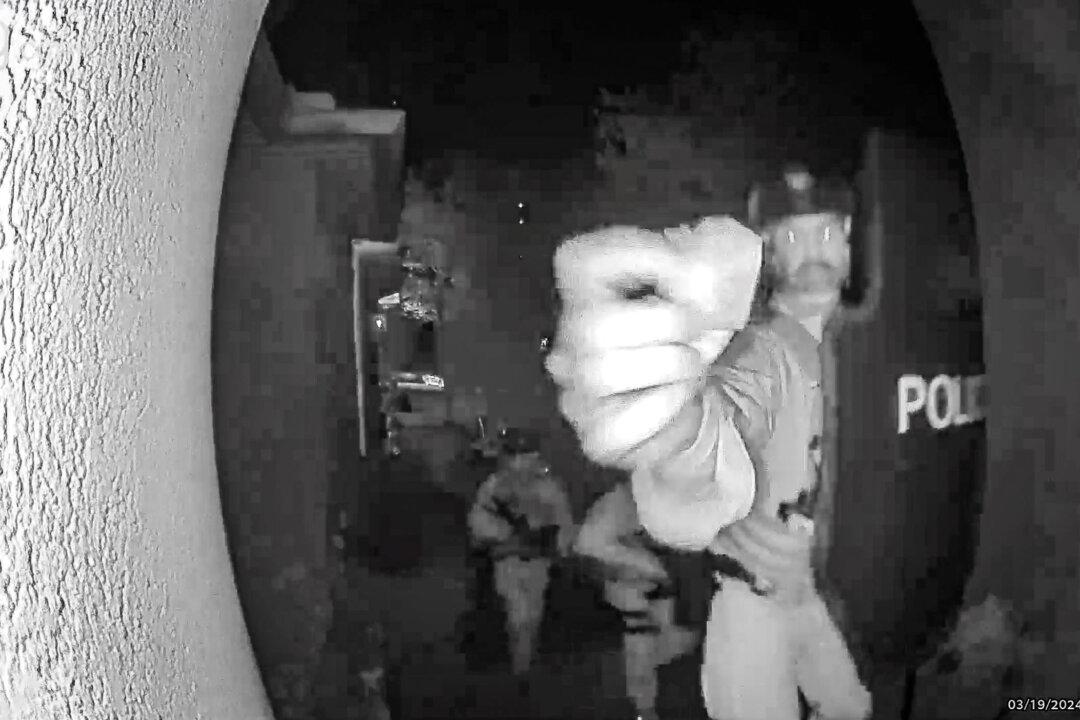It would have been a workday for Bryan Malinowski, executive director of the Bill and Hillary Clinton National Airport. But at 6 a.m., an hour before sunrise on March 19, he was still in bed drifting in peaceful sleep.
Outside, a convoy of 10 law enforcement vehicles rolled into his upscale neighborhood in West Little Rock, Arkansas, parking near his 3,000 square foot home, a neighbor’s doorbell camera shows.





